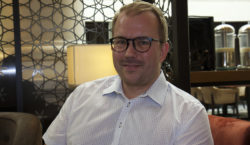In 2016 the start-up hype in Southeast Asia (SEA) has reached new heights. But there are different perceptions of what ‘start-up’ really comprises. Join ScandAsia for a lesson by Bangkok-based Techie Efraim Pettersson, a Swede who is undoubtedly an authority on the subject matter, and get really valuable insights concerning the start-up world and SEA.
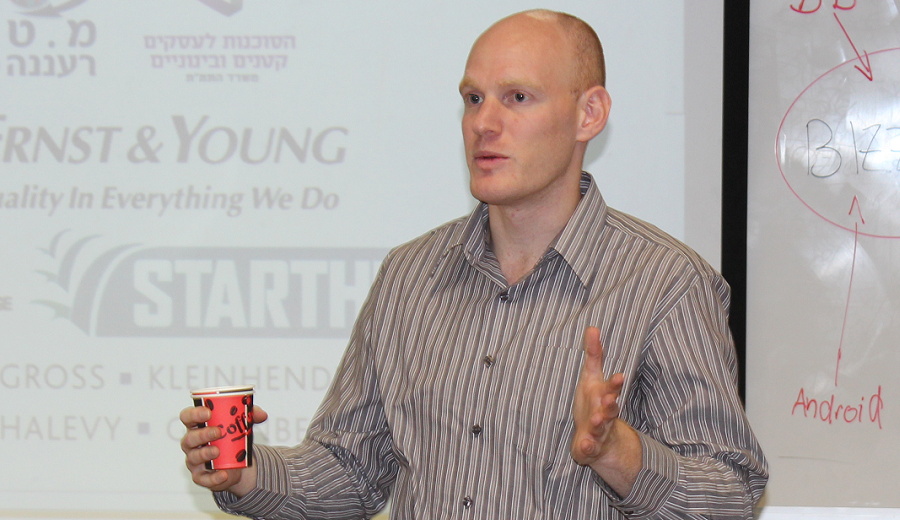
Efraim Pettersson and his team are bravely spearheading the first private technology incubator in SEA, TechGrind Incubator. Seeing SEA as a market of immense opportunities three-year-old TechGrind was founded as a grassroots tech start-up founder’s community, which as an organization subsequently built an entire technology economy – a “mini silicon valley” in SEA. It was a process of tech start-up founders coming together and validating the needs for tech start-ups to exist and thrive in this developing region.
Some of TechGrind’s first accomplishments in the region include building an accelerator program, an incubator, a tech angel syndicate and more recently a tech VC fund. TechGrind offers free mentorship, start-up offices and co-working space as well as many monthly events, quarterly workshops and larger yearly conferences.
“A major need out here was a systematic program building credible internationally competitive tech companies. So we launched the first private tech incubator in SEA. There was literally no start-up or tech economy out here in SEA before, though people talk about it a lot. Until a region produces technology on a global tech market it cannot claim to have a tech industry, that’s just farce,” states the TechGrind General Partner.
“Now, SEA and Thailand specifically can claim to have a tech economy – since some of our portfolio companies have products with users and customers globally from Russia to UK, Germany, USA, Australia, Latin America, and of course all over this region too. That’s what a technology economy is.”
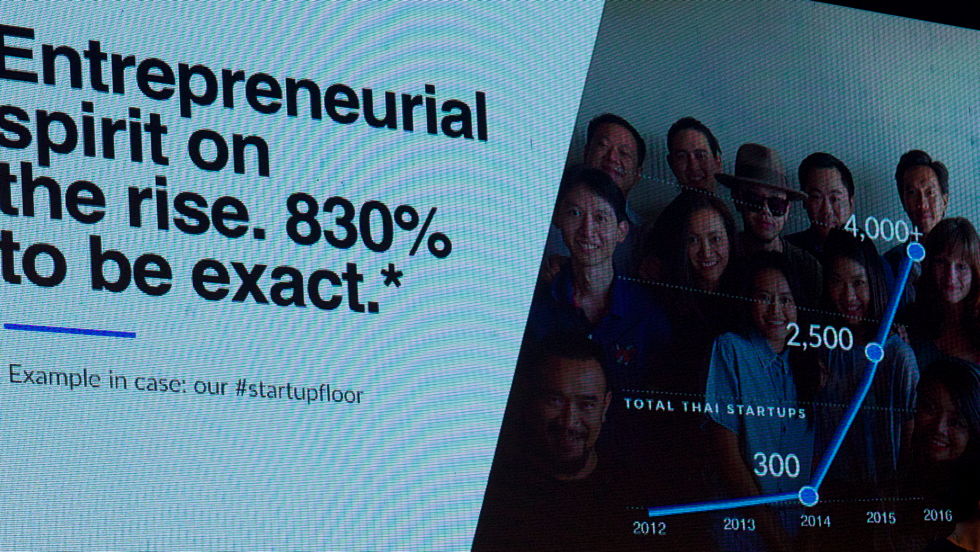
Bold numbers
Talking to Efraim it quickly becomes clear that he represents the genuine tech industry in SEA – those that live and breathe tech. His ambitions are high: “We can build a trillion dollar technology economy here. Literally, on the market that exists right now,” the Swede says without flinching. “My goal with TechGrind is a hundred billion. But just looking at the numbers, we have the potential to build a trillion US dollar organization network of tech companies here in the next 10 to 15 years.”
O.K… definitely sounds like there are business opportunities here, and these numbers feel… bold, to say the least!
“I build technology companies that figure out new models, create new solutions, and products with more strictly defined market fit. I like technology that creates superior value to what is currently available, that disrupts or improves processes to improve human conditions – whether it is in the business sector or daily life. That’s what a good start-up does, and when you solve a problem in this way, you then scale it to the world, and to as many people as possible that fit the solution.”
Efraim’s own track record includes: being tech lead in six start-ups and 3rd engineer in a seventh. Out of those seven three became unicorns ($1bn+ market cap or exit).
“This is now the land of opportunity, that’s why I’m here. My team and I can share our knowledge with a talent pool that desperately needs it in order to build successful tech companies.”
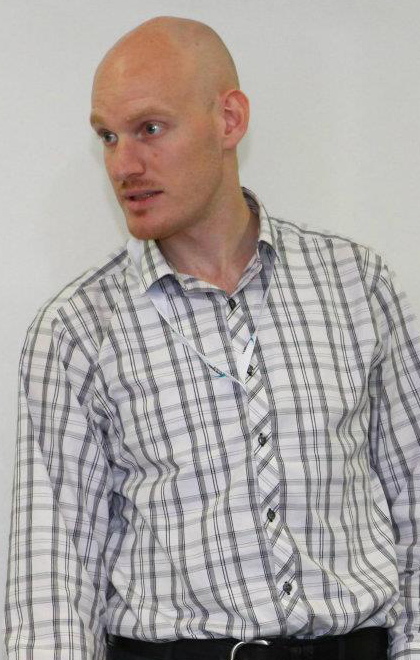
No billion-dollar companies
It was when Efraim was temporarily visiting Thailand back in August 2012 that some techies on the local scene, and who had done some really good research on the region, showed him all the numbers and how big the Southeast Asian market really is. This was a complete game-changer for him in terms of what to focus on, where to go next in the world, after a 15+ year tech start-up career.
“It was really convincing; there is a big market opportunity here,” Efraim had realised, but asked himself the question: “Why aren’t there billion dollar tech companies here?” The biggest exit in SEA up to now was the USD 200M acquisition of the start-up Viki.
“If you look at what’s happening and how SEA is evolving; it all makes complete sense. It is just quite surprising how ignorant we are of what’s going on here in the developed world. Nobody I talk to back home has any idea what is happening here; which was the same thing for me before I got here and decided to spend time and investigate. This region is undergoing tectonic shifts. It is a third-world region that is rapidly developing into a second-world economy, raw production of goods into manufacturing of those goods. Along with this and a 600+ million population we are seeing one of the top three fastest growing economies in the world, the fastest and most stable growing middle class in the world – and much more. It really is a huge economic shift.”
“There are huge problems that can be solved here. When you have an entire economy evolving to the next phase, there are entirely new experiences, problems, and needs – as well as the economic fiscal support to pay for them. The biggest problem out here in the developing world is that there is no technology solving their problems because so few in the developing world know how technology works or how to make it. That is why we are here, to help leapfrog SEA to a first-world economy by building local tech solutions for the entire developing world.”
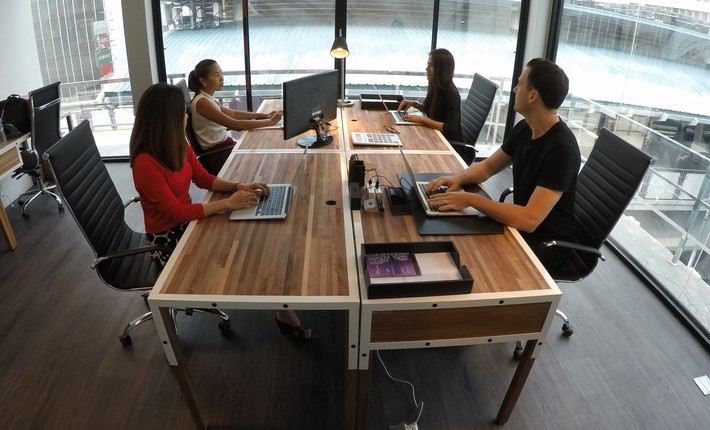
As a consequence of investigating further when he first arrived here, Eraim asked his Thai wife if they could stay in the region for six months. He wanted to see if he could make tech companies actually happen given the resources and people available – and it worked.
TechGrind began when he sat down with five founders of other local start-ups in Thailand and discussed their mutual problems with building tech start-ups in the region. “It was an interesting mix of three local Thai start-up founders and three foreigners.”
They decided to build an organisation that would solve all their own problems and build a start-up economy.
“The only limiting factor to growth here is the amount of quality people we can bring in. That is the hardest struggle in this region: human resources. Nobody out here has experience in building tech companies, even less working in one. It’s an uphill battle laying foundation knowledge in the best people and equipping them with the tools to do the job. This is one of the most complex and intellectual industries in the world. It takes a lot of brainpower and effort.”
So the challenge for Efraim is not only to just build another global start-up in the developing world, but the entire start-up economy.
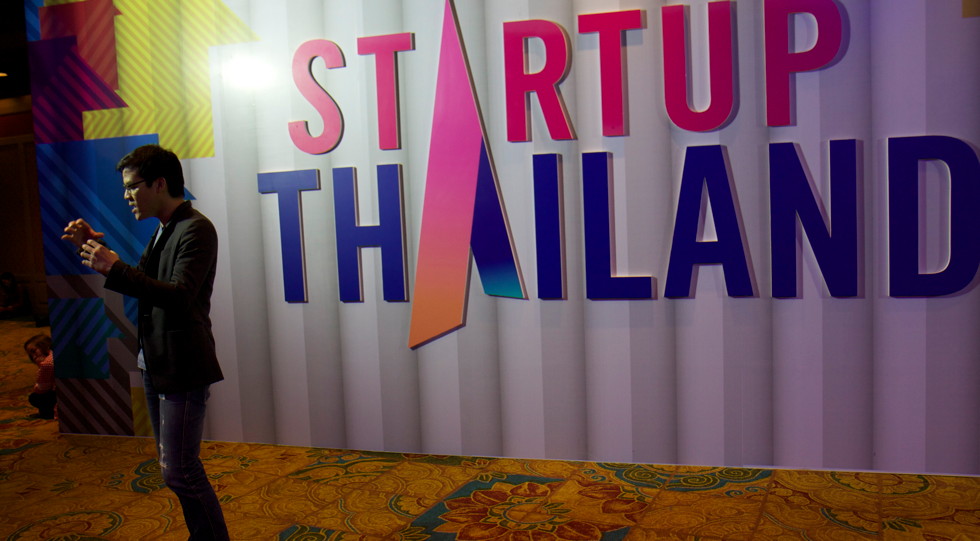
First world skills
“One of the most important things in building a tech eco-system is making sure everybody has access to the knowledge, especially here. We have active hubs that run activities and build communities across the region. These communities are where start-up founders begin their journeys, share knowledge, network to find partners and resources. This is the foundation.”
TechGrind puts a lot of effort and support specifically into the locals, to help bring their abilities up to the first-world economy level, where the tech industry sits. The goal is to also invest in and support start-ups founded by locals that can be globally competitive.
“There is a lot of explaining of the basics out here. Understanding how to work by the law, legally, is something entirely new, for example. That there exist rules and regulations governing our professional work and production and these must be obeyed strictly. No corruption either. We have a zero tolerance policy at TechGrind. Behaving ethically is intrinsic to succeeding at business in the global economy. Transparency and honesty. Entirely new concepts in the workforce out here and hard to implement but we are very strict about it and those that want to work in the first-world economy must do so regardless. There is no flexibility in this. They also need to learn how the first world economy even works – there are much more complicated business models. It isn’t just selling X for $Y and having your Z% margin.”
“Being in this region our policy is to put double the amount of effort into local founders that we incubate. We need to have Thai companies with Thai founders, Malaysian companies with Malaysian founders etc. We learned really hard the problems that Thais face, and have huge sympathy for that and respect the struggle they are going through. In fact we are quite impressed – that with so much going against them they are learning and adapting so quickly. It’s very inspiring.” Efraim evaluates.
“The majority of investments in SEA are going to come from outside. However, our focus is building a healthy local economy. As a business it is the biggest opportunity I have ever seen in the world.”
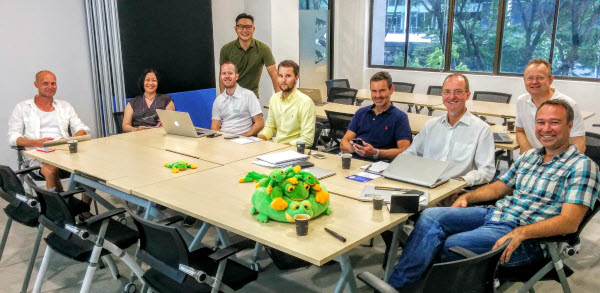
Singapore does not count
Crucially, when referring to SEA he does not refer to Singapore: “Socio-economically-speaking Singapore is not included when we say SEA. It’s a fully developed country; it does not have many problems. Those it does have are not similar at all to the rest of the region (and vice versa).”
Efraim studied Singapore carefully going there frequently during three years. His conclusion is that he will never invest in any Singapore-based start-up. Though he uses Singapore as a base of corporate and legal operations since it is world-class in that regard.
“Singapore doesn’t really exist on the tech industry map as it does not to produce actual technology for the tech market. It seems obvious but so few people recognize that. This whole start-up “ecosystem” in Singapore is also a complete farce and a scam on the Singaporean tax dollar. They started these government programs in 2006 with grants and funding of institutions etc. – but haven’t created a single successful tech company and I heard from a good inside government source that the total amount spent has so far reached over SGD 82 billion. Numbers speak for themself: 82bn and not a single successful tech company?”
“Singapore doesn’t have (and has never had) an entrepreneurial culture. Certain mentality, attitude, and behaviour are required to build start-ups and technology companies. This has been proven for many decades. There are also core skill sets required. For any tech industry veteran, it is a trivial issue that all of this is missing in Singapore. Singapore will never be a start-up hub.”
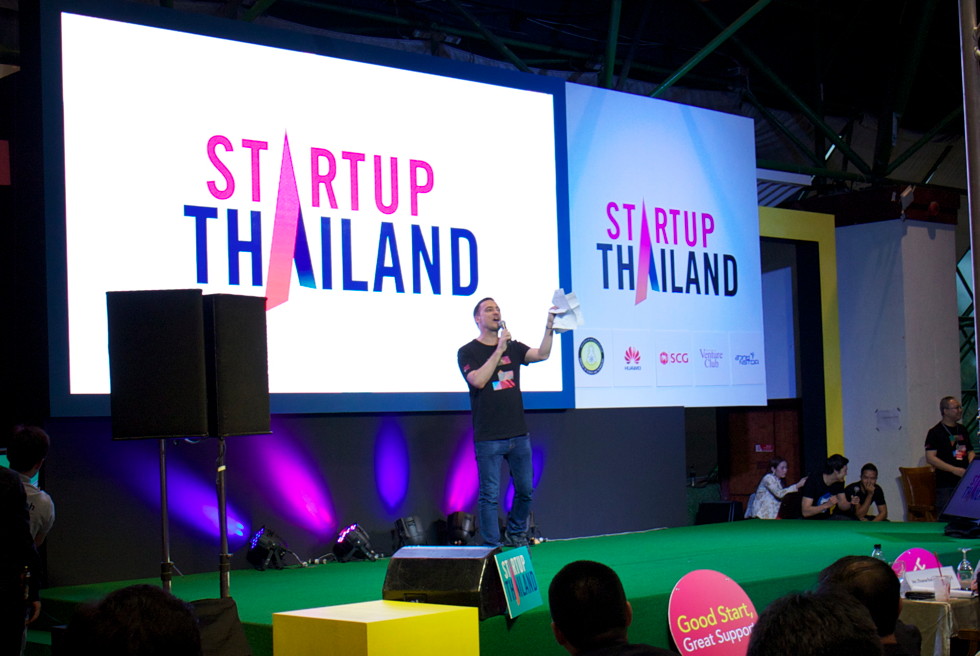
Efraim says that he is seeing much more potential in Thais in comparison. “Thais are already very entrepreneurial. They build businesses anywhere they can, pursue opportunities, take risks, much more than most in the Asian culture of risk-averseness.”
“I also learned something very valuable when I first came to Thailand – from aCommerce’s Adrian Vanzyl who I credit with educating me on the region to a big extent,” Efraim elaborates. “‘Nothing you do in Singapore, proves anything’, he told me. “Even if you build a tech product and capture 100% of the Singapore market, you still only have a ~5m population market and a very low glass ceiling. You haven’t proven anything. You haven’t solved a big market problem. Your product or service still won’t accomplish anything outside of Singapore. You have no product/market fit anywhere else. This basically means you’ve just built a lifestyle company, or what we call in the start-up industry a ‘zombie’. A successful start-up is meant to grow and scale and solve a big problem. You simply cannot do that in Singapore as it is too small.”
Attitude and ability
“So as far as investment of our time and capital we are putting that into start-ups that are going to take advantage of the opportunity in SEA and pursue solving as big of a problem as they can. So we try to find teams that are very dedicated to building companies around such a vision.”
“It comes down to two things: attitude and ability. Ability defines the soft and hard skills that they have, and, of course the quality of that work. It is the amount of tasks that they can accomplish off the huge list of things that a start-up needs to get done. The other side of the coin is attitude. If they don’t have the right attitude it doesn’t matter how much money, resources and amazing research you throw at them – they won’t build a successful start-up anyway. There is 60 years of industry data and scientific evidence behind this. It is not an opinion.”

Among the minimum criteria those considered for incubation by TechGrind have to undergo an intense program designed to build a solid founding team, before being connected to world-class investment and growth-capital. A team must have at least one full-time founder, and one founder with domain expertise. The founding team has to be able to actually do the work themselves.
“Start-up founders are the hardest working people there are. They have to be. Having a high quality of work and a lot of skills of course also amplifies that effect. Founders need to know where they are going and their daily practice is like being a GPS for their company: figuring out how to get there. This process is called validation, and is what building a leanstart-up is all about. We invest in individuals capable of doing that.”
Skills from many different sectors are needed to build a tech company, and TechGrind uses the common 90 per centile method in the process.
“If you were to plot out every single task and role in the company, every single job description – five years from now considering the company achieved all its goals; that entire list of roles/tasks comprise what we call the ‘roles map’. We look for founding teams who have the abilities and take responsibility for doing at least 90 percent of that roles map themselves. There are no managers in start-ups. Managers are dead weight. In a start-up there is nobody to manage, there is just a ton of work to do and the founders need to be very hard workers who enjoy getting shit done – this is what we call GSD, the #1 trait of a successful startup founder.”
Lean start-up validation has been accepted as a best practice in the industry, but the start-up scenes around the world still generate a lot of failures. Efraim explains that this is mostly due to leanstartup still not being followed by many; or not taken as seriously as it should be. Ego and emotional attachment to one’s product are the bane of a start-up founder, as two of the biggest reasons for failure.
“Ego is toxic. Emotional decision-making is suicide. Everything in the tech industry is data and logic. If your business isn’t built and operated this way you will eventually fail no matter what in this industry.” says the serial entrepreneur.
“The fact is that when you are building a start-up, you must learn everyday what you are doing. Which also means you have to get rid of your ego because an ego wont allow you to accept constant failure and mistakes. It will get in the way of learning. The #1 business goal of a start-up is learning, through testing and validation. You prove yourself wrong on a daily basis as a start-up founder. Well, if you are a successful one anyway. Learning a tighter product/market fit, learning the right functions and features to build for customers, learning the right pricing or business model that works for the market, learning about the problem your users have and how to solve it. It is an R&D type of company. The moment you stop learning is the moment you stop being a start-up, so if you aren’t at scale by then, you aren’t going to get to scale”
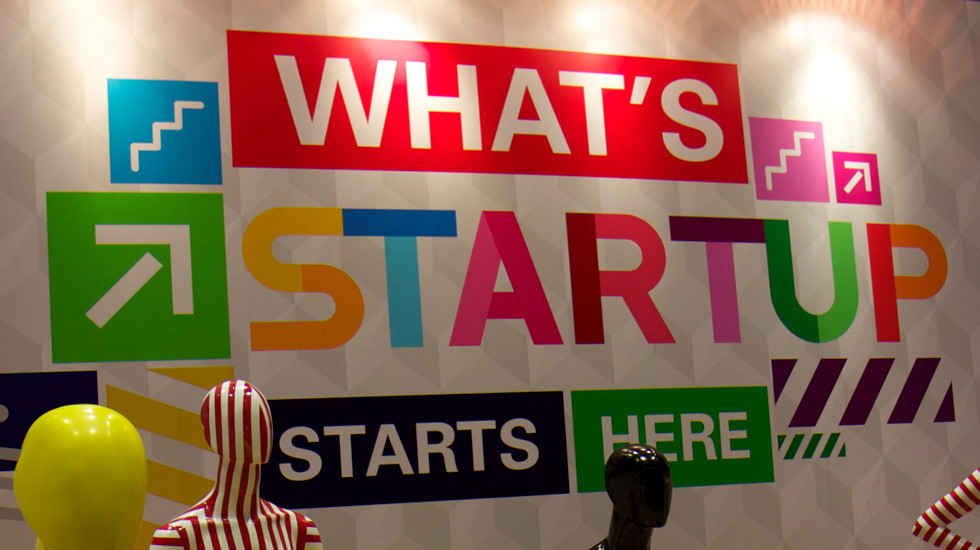
Hitting a billion
Another TechGrind criteria is that the project must have a $1bn minimum potential if successful; considering that Efraim and his team have already built $10bn in tech companies globally in the past 15 years – and want to stay focused on the really big problems.
“Hitting a billion dollars is actually not that hard. If you take any of the major problems that we deal with on a daily basis out here, and you say: ‘I’m going to build a company that solves this for Southeast Asia’, then you have a billion US dollar company,” claims Efraim, who says that there is actually little to no competition, very high adoption rates and low friction for tech products in SEA.
He mentions as an example that there are currently about 180 million SMEs in the developing world that use no financial software.
“We are leap-frogging the solution in one of our portfolio companies, by building financial software to provide for the entire developing world. So you can look at the market size, the amount of people that would use that, the average cost they can afford and then you output revenue that way. Which is only the most simple of business models and by far not the largest we will tap. Yet it is already a $bn company at scale based on what it has already proven and validated in the market.” Efraim adds that this exciting company – Pymlo – is growing rapidly.
“Let me ask you a question: how does Google make money?” he postures. “You use Google search and GMail, but do you pay Google anything? Probably not, at least not for those services. Yet they are a half-trillion USD company so how do they make their money?” he pauses.
“Exactly. It’s not as simple as a traditional business model. Its a complex value chain with lots of inputs and outputs, and the net result is that you can make a lot more money by NOT selling your software than by creating a healthy ecosystem or value chain within the technology.”
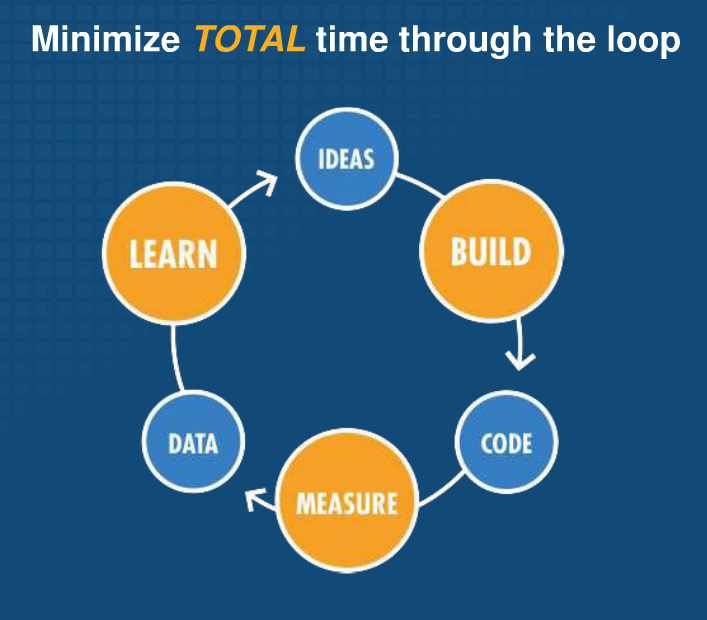
Build, measure, learn
A start-up is also not a corporation, he says. Using one of the most brilliant and accepted definitions of ‘start-up’ in the industry, by “godfather” figure Steve Blank: “a start-up is a temporary organization designed to search for a scalable, repeatable business model”. As long as it retains this format and focus – the company continues to be a start-up.
“It’s a very powerful definition, the nature of the organization is temporary. It’s meant to be changed on a daily basis; it needs to be adaptable. ‘Designed to search’ also says allot about a start-up: the entire focus of the business is to learn and establish better product/market fit, more efficient processes. This primary purpose contradicts what non-tech-industry people typically believe makes a good start-up: revenue. Focusing on revenue is one of the largest contributors to start-up failure actually, says Efraim. “There’s also 60 years of industry data to prove this. Again, this isn’t my opinion.” The purpose of a start-up is to repeat the BML loop as quickly as possible: Build – Measure – Learn.
Efraim says that Facebook and Google are today technically still start-ups: “They spend more than 50% of their assets, their entire focus as a company going through BML. They are still innovating, still building products, still finding better product/market fit in existing ones. They are still start-ups as businesses and internally with company culture.”
“Tech businesses work on 1000% margins. In contrast to traditional business models that are happy with 10% or 20%. The problem for tech companies is that we actually need 1000% margins otherwise we cant pay for our R&D. We would die. In the tech industry we don’t even talk in percentages – we talk in multiples. 2x this or 10x that makes more sense in our business, financial and scope metrics than percentages do.”
When asked what is next to come for TechGrind, he says: “From here on out it’s just a matter of scaling, and improving the quality of what we’ve done. Constantly learning. Building a start-up economy requires practicing what we preach. It’s the only thing we’re good at anyway,” Efraim concludes with a laugh.

